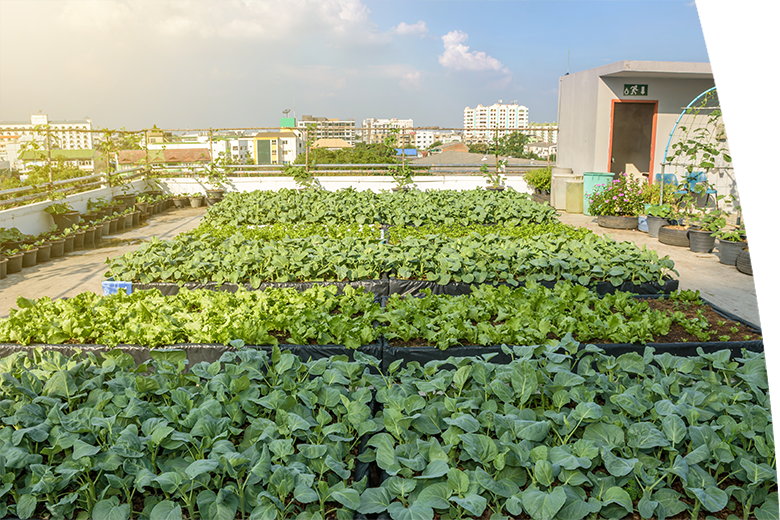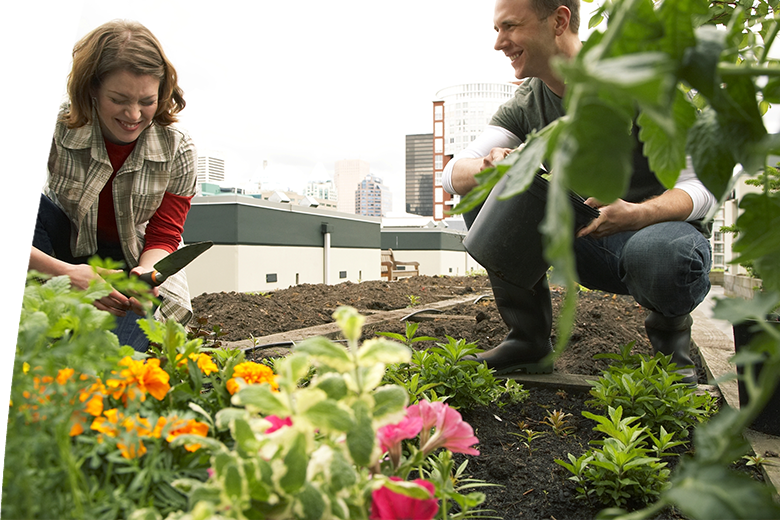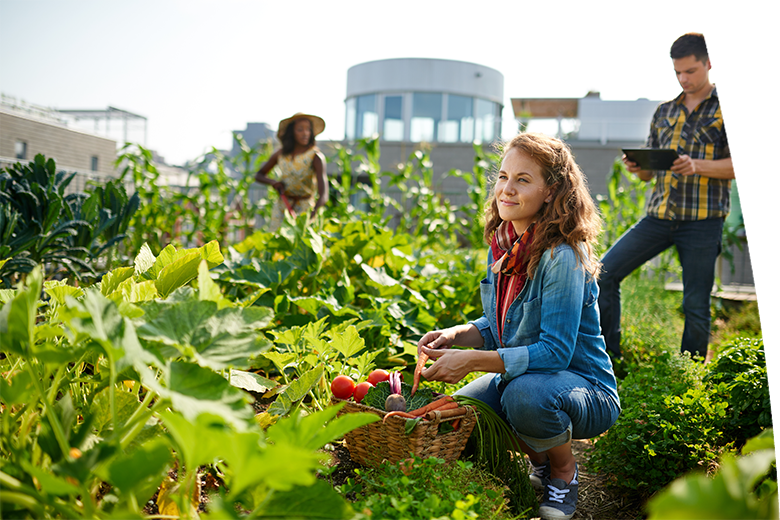Community Gardens and Rooftop Farms. Have You Heard of Them?

These green oases in the midst of concrete jungles are not just scenic escapes, but play a key role in the future of food production. Find out what benefits they have and why businesses should consider them in our article.
As urban populations continue to grow globally, pressure on traditional farming systems continues to grow and become more important. Urban farming is proving to be a pretty good solution to food security and reducing the carbon footprint associated with their transportation. Community gardens and rooftop farms are transforming idle rooftops, vacant lots, and underutilized urban areas into thriving centers of food production.
Benefits of Community Gardens and Rooftop Farms
Local food production: For one thing, they bring agriculture closer to consumers, significantly reducing the carbon footprint associated with transportation. Community gardens and rooftop farms provide fresher, healthier food while minimizing environmental impact.
They engage communities: These green oases bring city dwellers together. People meet to grow plants, food and care for the environment. They also serve as educational platforms.

Environmental sustainability: Urban agriculture contributes to environmental sustainability by mitigating stormwater runoff and increasing biodiversity.
Economic opportunity: Community gardens and rooftop farms create economic opportunities for local residents. They support small businesses, provide job training, and stimulate the local economy through sales at farmers markets or to local restaurants.
Why Should Companies Consider Community Gardens and Rooftop Farms?
Corporate Social Responsibility (CSR): The embrace of community gardens and rooftop farms is consistent with corporate values of sustainability and social responsibility. By supporting these initiatives, companies demonstrate their concern for the environment and community development, thereby strengthening their brand image and reputation.
Employee engagement: Participating in shared gardening activities promotes team building, reduces stress and improves overall well-being, leading to a more productive workforce.

Green infrastructure and urban regeneration: Community gardens and rooftop farms enhance the aesthetic appeal of buildings, and incorporating green infrastructure into corporate properties improves air quality, reduces energy consumption, and increases property values.
Businesses that adopt community gardens and rooftop farms gain fresh produce, a better brand reputation, but contribute to the greater good by promoting environmental stewardship. The importance of community gardens and rooftop farms will only grow and will be important for sustainability in the concrete jungle.
Don't forget to subscribe to our newsletter to get more tips and advice from different areas of the business environment.



